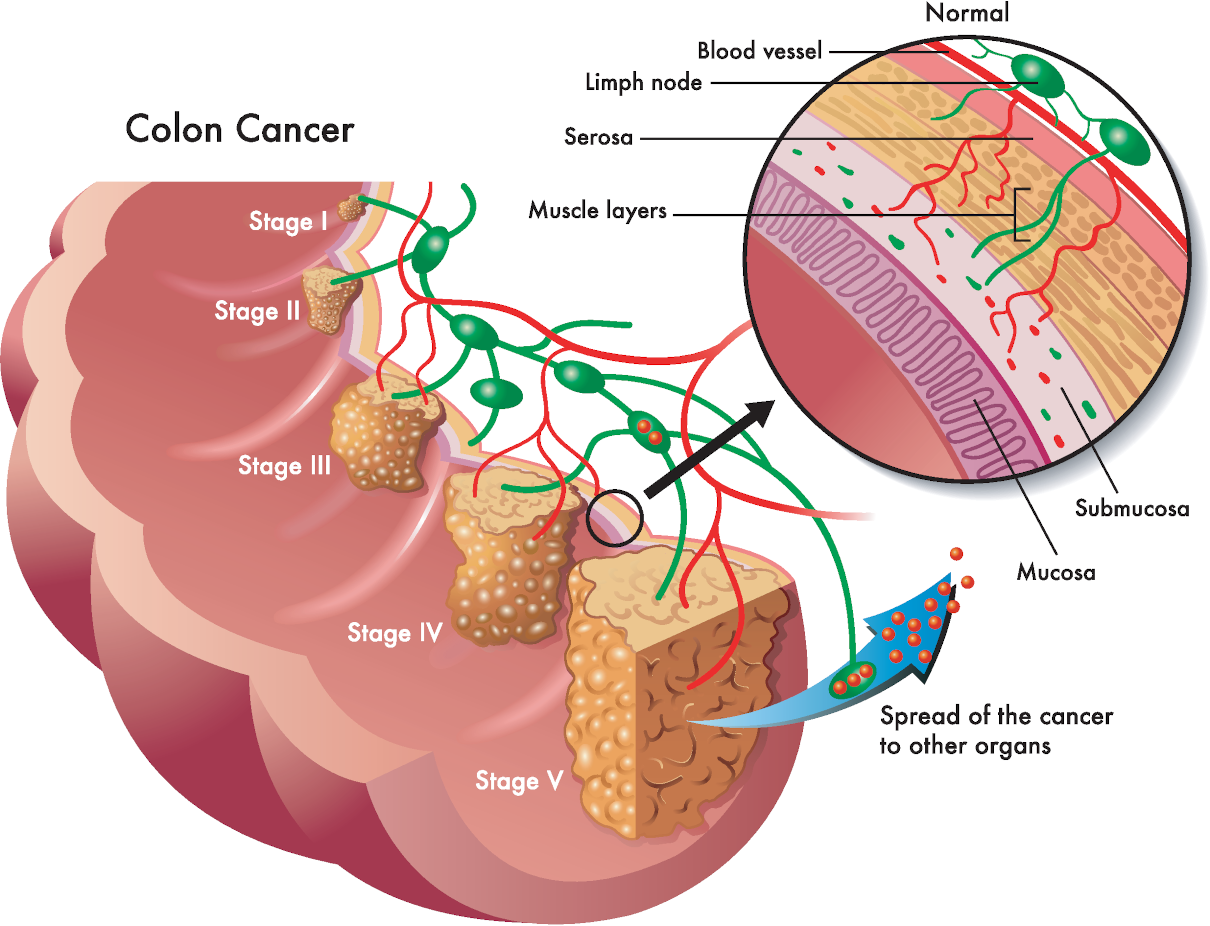
/Fourth stage bowel cancer./ In cancer of the intestine and other types of cancer, a malignant neoplasm can grow aggressively and spread to other organs and tissues. The pathological process can develop in any part of the large intestine. Doctors found cancer in the cecum (20% of cases), the rectum (20% of cases), the sigmoid colon (25% of cases) and in the transitional segment of the sigmoid colon to the rectum (up to 10% of cases).
Fourth-stage bowel cancer occurs when malignant cells infect the lymph nodes, adjacent organs, tissues, and distant organs. The neoplasm produces toxic substances, poisoning the body and disrupting its functioning as a whole.
Symptoms
Fourth-stage bowel cancer has the following symptoms:
- Severe abdominal pain;
- Severe pain in metastatic organs.
A fistula may occur between the bladder or vagina and the lumen of the rectum in patients. It is common for a tumour to grow in the bladder. Because of that, patients can observe faecal matter from the vagina during urination or at rest.
That leads to inflammation of the female genital organs and cystitis, which can extend to the kidneys in such cases. When neoplasms grow in the bladder wall, urine can appear from the rectum during bowel movements or even at rest.

Probiotic implant and alkalising colonic with bicarbonate of soda
Alkalising colonic irrigation with bicarbonate of soda and high strength probiotic implants and comprehensive consultation is available at Parkland Natural Health Clinic.
Fourth stage bowel cancer: diagnosis and prognosis
Diagnosis of the fourth-stage bowel cancer:
- Stool test for occult blood;
- colonoscopy, i.e. examination of the large intestine to identify the exact location of a tumour, its size and obtain tissue to determine its histological type;
- a general and biochemical blood test to assess the condition of the kidneys and liver;
- sigmoidoscopy for the examination of the sigmoid and rectum, the area of the anus;
- irrigoscopy, especially for detecting cancer of the sigmoid and rectum;
- Ultrasound, i.e. ultrasound examination of the abdominal cavity;
- CT scan, i.e. computed tomography;
- chest x-ray.
The prognosis for the fourth stage of bowel cancer is as follows.
Five-year survival
Approximately 25% of patients with intestinal cancer already have distant metastasis at the time of detection of the disease. Unlike other cancerous conditions, the size of a primary tumour under other equal conditions (such as a degree of differentiation, spreading to the lymph nodes) does not affect the prognosis for intestinal cancer stage 4.
About 50% of patients with impaired liver function and hepatomegaly live 6 to 9 months after identifying distant metastases. Besides, about 50% of patients with a single metastasis in the liver live 24-30 months. Five-year survival is less than 1%. So, we recommend undergoing colonic irrigation to prevent intestinal diseases.

Anti-candida Mini Detox – three colonics with bicarbonate of soda
The Anti-candida mini detox involves a concentrated series of three colonics infused with bicarbonate of soda, ideally scheduled once weekly. This regimen serves as a potent initiation into a detoxifying cleansing routine, setting the pace for rejuvenation.









